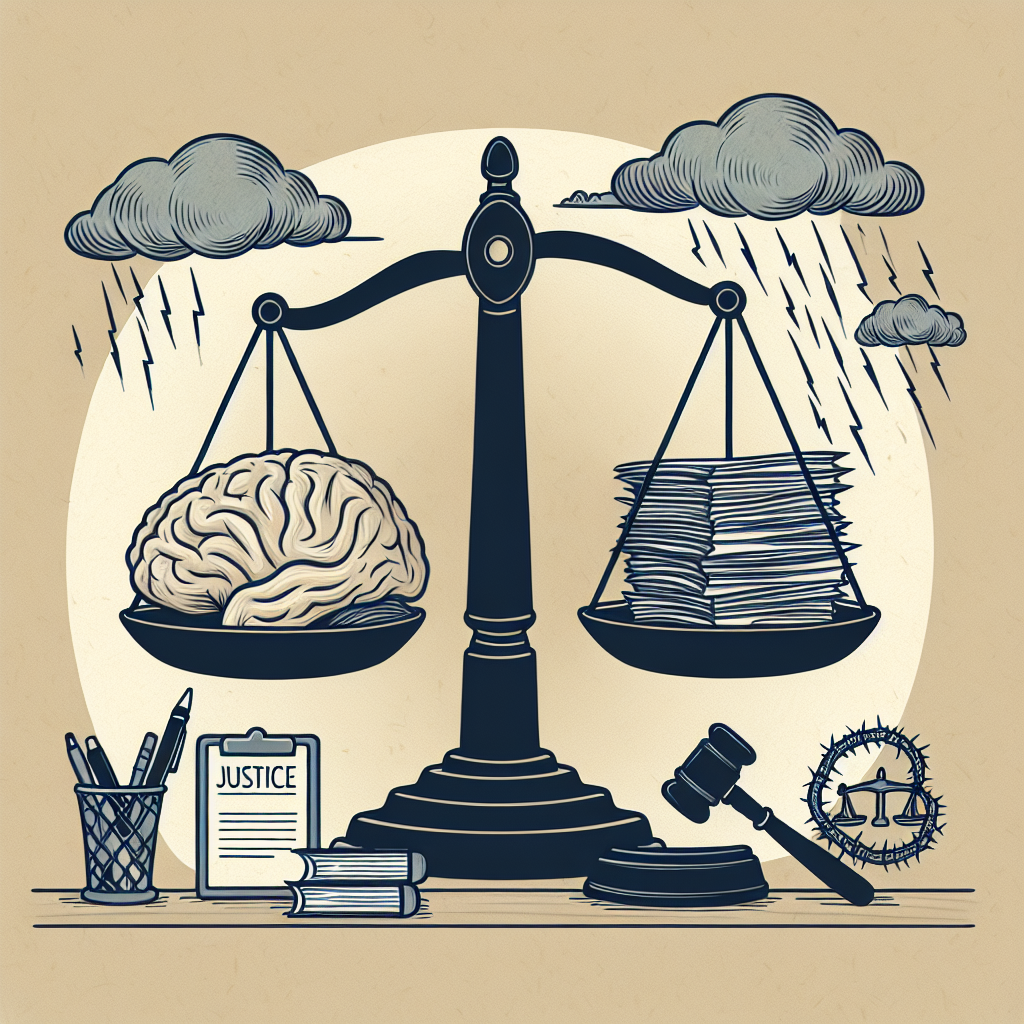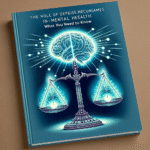
Introduction
Imagine living through a traumatic event that disrupts your everyday life, casts a shadow over your mental well-being, and leads to sleepless nights harboring anxieties that feel insurmountable. For many individuals, this is the painful reality of experiencing Post-Traumatic Stress Disorder (PTSD). Amidst the myriad of discussions surrounding trauma, one crucial aspect often remains relatively unexplored: how damages for PTSD are evaluated in civil litigation. In this article, "Redefining Damages: Evaluating PTSD in Civil Litigation," we will delve into the complexities of this criterion while shedding light on the evolving landscape of legal compensation for psychological trauma.
Identifying and quantifying PTSD damages can be daunting, yet it is essential for victims seeking justice. As understanding, awareness, and legal perspectives on mental health change, redefining how damages are assessed becomes vital. This shift not only paves the way for fair compensation but also fosters a more compassionate understanding of mental health challenges in the court system.
Understanding PTSD in Civil Litigation
What is PTSD?
PTSD is a mental health condition triggered by witnessing or experiencing a traumatic event. Symptoms may include flashbacks, severe anxiety, emotional numbness, and uncontrollable thoughts about the event. While psychological trauma is not new, courts are increasingly recognizing its long-term impacts.
The Legal Framework
Historically, civil litigation has focused primarily on physical injuries or property damage. However, as mental health has gained visibility, legislation and case law increasingly encompass the psychological ramifications of trauma. This shift underscores the need for a robust evaluation process tailored for PTSD claims, emerging as a crucial component of civil litigation.
The Burden of Proof
To successfully claim damages for PTSD in civil litigation, the plaintiff must typically demonstrate three key components:
- Existence of a Stressful Event: The traumatic incident is clearly defined.
- Medical Diagnosis: A qualified mental health professional diagnoses PTSD.
- Causal Connection: A link must be established between the traumatic event and the emotional distress leading to the claim.
Evaluating PTSD in Civil Litigation: Key Components
The Role of Expert Testimony
Expert testimony plays a pivotal role in bridging the gap between psychological experiences and legal standards. Mental health professionals can provide insight into diagnostic criteria and the nuances of PTSD, justifying the need for damages.
Case Study: Smith v. ABC Corp.
In this landmark case, the plaintiff, Jane Smith, experienced a workplace incident that caused significant trauma. A clinical psychologist testified to the debilitating effects of her PTSD symptoms, playing a crucial role in demonstrating the reality of her suffering and needs for treatment. The jury ultimately awarded her damages that reflected not just immediate medical costs but also long-term psychological care.
Using Diagnostic Criteria for PTSD
The Diagnostic and Statistical Manual of Mental Disorders (DSM-5) provides criteria for diagnosing PTSD, enabling clarity in legal evaluations:
- Exposure to a traumatic event
- Presence of intrusive thoughts
- Avoidance behaviors
- Negative changes in mood and cognition
- Changes in arousal and reactivity
Courts increasingly use these criteria as a foundation for evaluating PTSD claims.
Challenges in the Evaluation Process
Subjectivity of Mental Health
A significant challenge in evaluating PTSD in civil litigation lies in its inherently subjective nature. Unlike physical injuries, psychological injuries often lack quantifiable metrics, making it challenging to translate experiences into damages. Courts must navigate the fine line between valid claims and potential abuses of the system.
Stigma and Misunderstanding
The stigma surrounding mental health can make jurors hesitant to accept PTSD as a legitimate claim. Juror biases may perceive the symptoms as exaggerated or fabricated, disproportionately affecting the victim’s chances of securing fair compensation.
Quantifying Damages: What to Consider
Quantifying damages for PTSD typically includes several elements:
- Medical expenses: Current and future treatment costs.
- Lost wages: Income loss due to inability to work.
- Pain and suffering: Subjective evaluation of distress.
- Emotional distress: Psychological pain caused by the trauma.
By clearly delineating these categories, legal teams can help jurors understand and empathize with the emotional toll that trauma can impose.
Practical Approaches to Enhancing Claims
Documenting Evidence
Victims should meticulously document their emotional and psychological experiences related to the incident, including:
- Journals outlining daily struggles.
- Medical records supporting diagnosis and treatment.
- Testimonies from friends or family noting changes in behavior or mood.
This documentation will bolster their claims and provide tangible evidence of the impact.
Engaging Multi-Disciplinary Experts
Collaboration among various professionals—legal, medical, and psychological—is vital. For instance, vocational experts can demonstrate lost earning potential, while economic experts can quantify overall economic losses. This multi-disciplinary approach enriches the substantiation of claims.
Case Studies Illustrating Evaluated Damages
Case Study: Johnson v. XYZ Hospital
In Johnson v. XYZ Hospital, the plaintiff alleged that medical malpractice during a procedure led to a traumatic experience that resulted in severe PTSD. Expert witnesses explained how the incident led to chronic anxiety, intrusive memories, and significant lifestyle changes. Ultimately, the jury awarded substantial damages, in part due to the comprehensive evaluation of emotional suffering documented during the trial.
Case Study: Thompson v. State
In the case of Thompson v. State, a former military officer sought damages after experiencing a traumatic event in the line of duty. This case was enlightening in that it highlighted the connection between military service and PTSD, showcasing the urgency for legal definitions around PTSD to be more inclusive and responsive to varied experiences.
Future of PTSD in Civil Litigation
Legal Reforms and Emerging Trends
Legal frameworks are evolving to better address psychological injuries, as courts are increasingly recognizing the validity of mental health claims. Some potential reforms include:
- Establishing standardized compensation models for psychological trauma.
- Expanding definitions of trauma to encompass mental distress.
- Strengthening guidelines on expert testimony related to mental health.
The Importance of Legal Precedent
As more cases emerge that test the boundaries of PTSD claims, the legal landscape will continue to shift. Precedents established in courts can set the tone for future evaluations, influencing how claims are processed and compensated.
Conclusion
Redefining damages by evaluating PTSD in civil litigation is not merely a legal necessity but a moral imperative. The journey to justice for victims of trauma should embrace a compassionate understanding of mental health. By fostering the conditions for a fair assessment of psychological harms, the judicial system benefits everyone—victims seeking reparation and society at large by enhancing the recognition of mental health issues.
As we move forward within this evolving realm, it is crucial for legal professionals, mental health advocates, and victims to unite in advocating for fair evaluations. Each success story can transform lives and help mitigate the stigma surrounding mental health. The call to action is clear: we must champion a legal framework where the psychological scars of trauma are acknowledged, validated, and compensated.
FAQs
1. What is PTSD?
Post-Traumatic Stress Disorder (PTSD) is a mental health condition triggered by experiencing or witnessing a traumatic event. Symptoms can significantly impact day-to-day life.
2. How are damages for PTSD calculated in civil litigation?
Damages are typically calculated based on medical expenses, lost wages, pain and suffering, and emotional distress, anchored to documented evidence of the psychological impact.
3. What role do expert witnesses play in PTSD claims?
Expert witnesses provide essential insights regarding diagnosis and the psychological effects of trauma, helping juries understand the severity and implications of PTSD.
4. Can I claim damages for PTSD without physical injuries?
Yes, it is possible to claim damages for PTSD even if there are no physical injuries, as long as the trauma can be legally validated and documented.
5. How can I strengthen my PTSD claim in civil litigation?
Documenting your experiences, engaging with a multi-disciplinary team, and securing expert testimonies can significantly enhance your claim’s strength and validity.
By reevaluating the frameworks around PTSD, civil litigation can begin to reflect the profound complexities of mental health, allowing justice to be administered more fairly and compassionately in our society.













